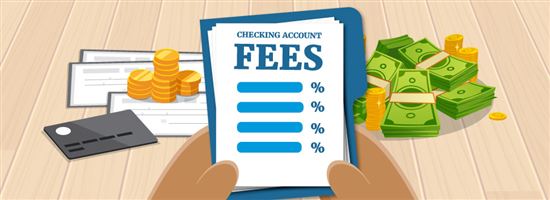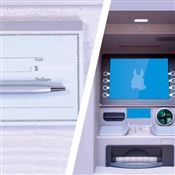Why Do Checking Accounts Have Fees
Monthly maintenance fees can range from $4 - $20. Find out why banks charge them and how to avoid those pesky fees.
 |
Checking accounts help you manage your money and protect it from fire, loss, or theft.
Plus, checking accounts at FDIC-insured banks covers your cash for up to $250,000.
Sounds great, right? But these services do come at a cost. Learn more about how these monthly service fees work.
What are Checking Account Fees?
You get charged "checking account fees" by your bank when you make certain transactions or don't keep a minimum balance. This includes monthly service fees, overdraft fees, foreign transaction fees, among others.
Keep reading for the types of checking accounts you might encounter.
Types of Checking Account Fees
Common checking account fees include:
- Monthly service: Roughly $5-15; charged by the bank for the maintenance of your checking account.
- Overdraft fee: $25-35; charged when you spend more money than your checking account has in it; the bank covers the difference.
- Non-sufficient funds fee: $30-35; charged when you spend more money than your checking account has in it; the bank does not cover the difference.
- Out-of-network ATM fee: $2-5; charged when you use an ATM that is outside of your bank's ATM network.
- Paper statement fees: $1-5; charged when you have a paper statement mailed to you (instead of only using online banking).
- Foreign transaction fee: 1-3% of the transaction amount; charged when you make a purchase through a foreign bank or in a currency other than USD.
- Account closure fee: $10-50; charged when you close your account with the bank.
Do Banks Charge Fees for Checking Accounts?
Banks and credit unions charge a fee for hosting your checking account. Usually, these fees range from $4 to $20, but they can be higher depending on the bank and account type. You waive these fees by maintaining a certain balance or making certain transactions.
Banks charge a monthly maintenance fee to cover the costs of maintaining accounts. Some of these services may include overdraft protection, no charge for using out-of-network ATMs, cash back rewards on credit cards, and more.
Online banks tend to have fewer fees than brick-and-mortar banks because they don't need to worry about maintaining physical branches.
How Do You Avoid Checking Account Fees?
Thankfully, there are a few ways to avoid paying checking accounts fees:
- Maintain the minimum balance that your bank requires. Be sure to ask your bank if they calculate minimum balance by a daily average or by the balance on the last day of the billing cycle.
Alternatively, pick a checking account that has no minimum balance requirement.
- Take advantage of student checking (no monthly service fee). Student checking accounts are usually reserved for college students aged 17-24.
- Set up regular direct deposits. An easy way to do this is by setting up direct deposit of your paycheck with your employer. That way, it will be easier to maintain the minimum balance.
- Open an online checking account to avoid out-of-network ATM fees.
- Opt out of overdraft protection. Opting out prevents your bank from covering a transaction that exceeds your balance, and you won't need to pay the $35 fee.
- Enjoy relationship benefits when you have multiple accounts in one bank. Many banks will waive fees if your accounts have a combined minimum balance.
- Limit transfers from savings and stick with your checking account for most transactions. Since savings accounts limit transfers and withdrawals, you're likely to incur fees.
Can Free Checking Accounts Have Fees?
Some banks offer free checking accounts. This usually means the account does not charge the following:
- Monthly maintenance fees
- Minimum balance requirements
- Direct deposit requirements
- Other types of fees associated with the accounts
However, some "free" checking accounts will still have requirements to waive those fees. To find a truly free checking account, be sure to ask a bank representative about any requirements the account has.
Bottom Line
Banks do perform a lot of financial services and that's why they usually charge fees. But some checking account fees are easier to waive than others.
Before you sign up for a checking account, confirm how easy it is to waive the monthly maintenance fees and take a look at any other fees. You can speak with a representative or do some research online.
Amber Kong is a content specialist at CreditDonkey, a bank comparison and reviews website. Write to Amber Kong at amber.kong@creditdonkey.com. Follow us on Twitter and Facebook for our latest posts.
|
|
| ||||||
|
|
|







